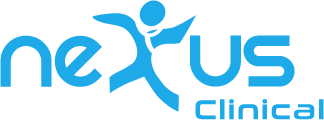
R13.10: Diagnosis Code for Dysphagia Unspecified
- R13.10 is a billable/specific ICD-10-CM code that can be used to indicate a diagnosis for reimbursement purposes.
R13.10: Diagnosis Code for Dysphagia Unspecified
- R13.10 is a billable/specific ICD-10-CM code that can be used to indicate a diagnosis for reimbursement purposes.

Billable/ Specific Code:
R13.10 Diagnosis Code is a billable/specific ICD-10-CM code that can be used to indicate a diagnosis for reimbursement purposes.
R13.10 is the ICD-10 diagnosis code for unspecified dysphagia, used to identify and document cases where a patient has difficulty swallowing without a more specific diagnosis.
Applicable To:
- Difficulty in swallowing NOS
Approximate Synonyms:
- Dysphagia
- Dysphagia (difficulty swallowing)
- Impaired swallowing
- Odynophagia (painful swallowing)
- Swallowing painful
- Swallowing problem
Clinical Information
- A disorder characterized by difficulty in swallowing.
- A symptom referring to difficulty in swallowing. It may be observed in patients with stroke, motor neuron disorders, cancer of the throat or mouth, head and neck injuries, parkinson disease, and multiple sclerosis.
- Difficulty in swallowing which may result from neuromuscular disorder or mechanical obstruction. Dysphagia is classified into two distinct types: oropharyngeal dysphagia due to malfunction of the pharynx and upper esophageal sphincter; and esophageal dysphagia due to malfunction of the esophagus.
- Difficulty in swallowing.
- Difficulty swallowing.
- If you have a swallowing disorder, you may have difficulty swallowing and may also have pain while swallowing. Some people may be completely unable to swallow or may have trouble swallowing liquids, foods or saliva. This makes it hard to eat. Often, it can be difficult to take in enough calories and fluids to nourish your body. anyone can have a swallowing disorder, but it is more likely in the elderly. Swallowing problems often happen because of other conditions, including
- nervous system disorders, such as parkinson’s disease and cerebral palsy
- problems with your esophagus, including gastroesophageal reflux disease (gerd)
- stroke
- head or spinal cord injury
- cancer of the head, neck, or esophagus
medicines can help some people, while others may need surgery. Swallowing treatment with a speech-language pathologist can help. You may find it helpful to change your diet or hold your head or neck in a certain way when you eat. In very serious cases, people may need feeding tubes. nih: national institute on deafness and other communication disorders
Related Specialties:
- Gastroenterology
- Internal Medicine
- Otolaryngology (ENT)
ICD-10: A Brief Synopsis
For disease reporting, the US utilizes its own national variant of ICD-10 called the ICD-10 Clinical Modification (ICD-10-CM). A procedural classification called ICD-10 Procedure Coding System (ICD-10-PCS) has also been developed for capturing inpatient procedures. The ICD-10-CM and ICD-10-PCS were developed by the Centers for Medicare and Medicaid Services (CMS) and the National Center for Health Statistics (NCHS). There are over 70,000 ICD-10-PCS procedure codes and over 69,000 ICD-10-CM diagnosis codes, compared to about 3,800 procedure codes and roughly 14,000 diagnosis codes found in the previous ICD-9-CM.
The expansion of healthcare delivery systems and changes in global health trends prompted a need for codes with improved clinical accuracy and specificity. The alphanumeric coding in ICD-10 is an improvement from ICD-9 which had a limited number of codes and a restrictive structure. Early concerns in the implementation of ICD-10 included the cost and the availability of resources for training healthcare workers and professional coders.
There was much controversy when the transition from the ICD-9-CM to the ICD-10-CM was first announced in the US. Many providers were concerned about the vast number of codes being added, the complexity of the new coding system, and the costs associated with the transition. The Centers for Medicare and Medicaid Services (CMS) weighed these concerns against the benefits of having more accurate data collection, clearer documentation of diagnoses and procedures, and more accurate claims processing. CMS decided the financial and public health cost associated with continuing to use the ICD-9-CM was too high and mandated the switch to ICD-10-CM.





